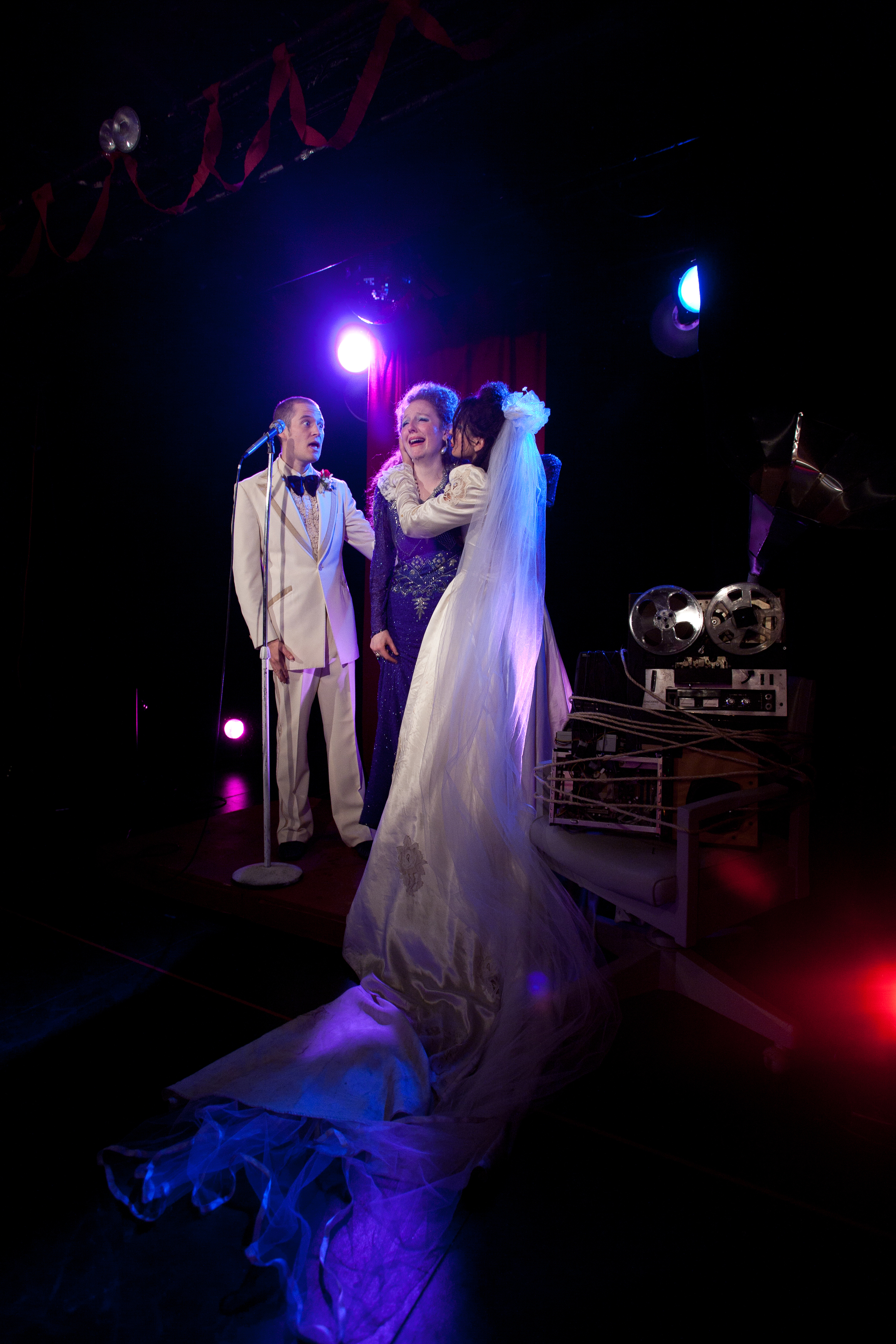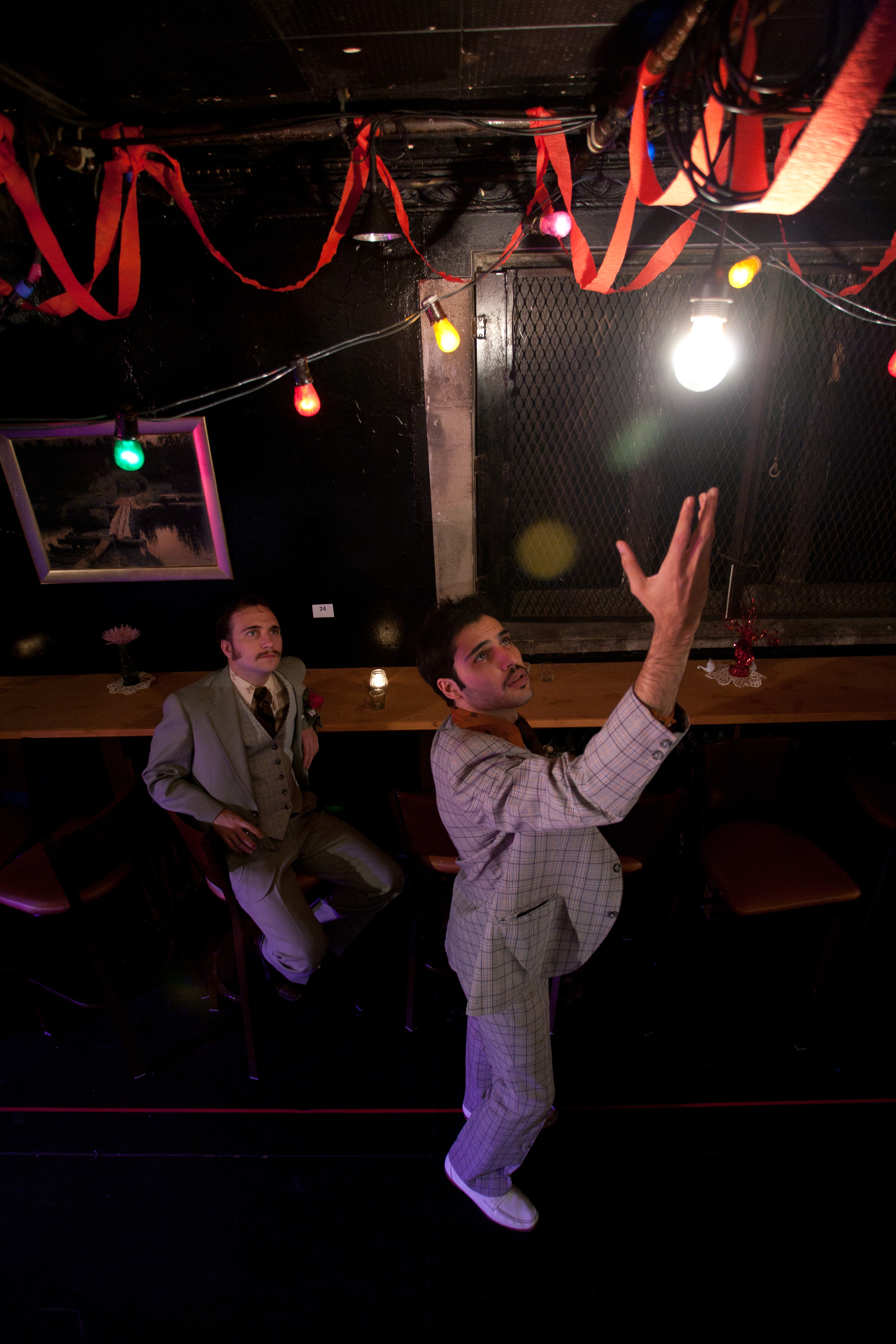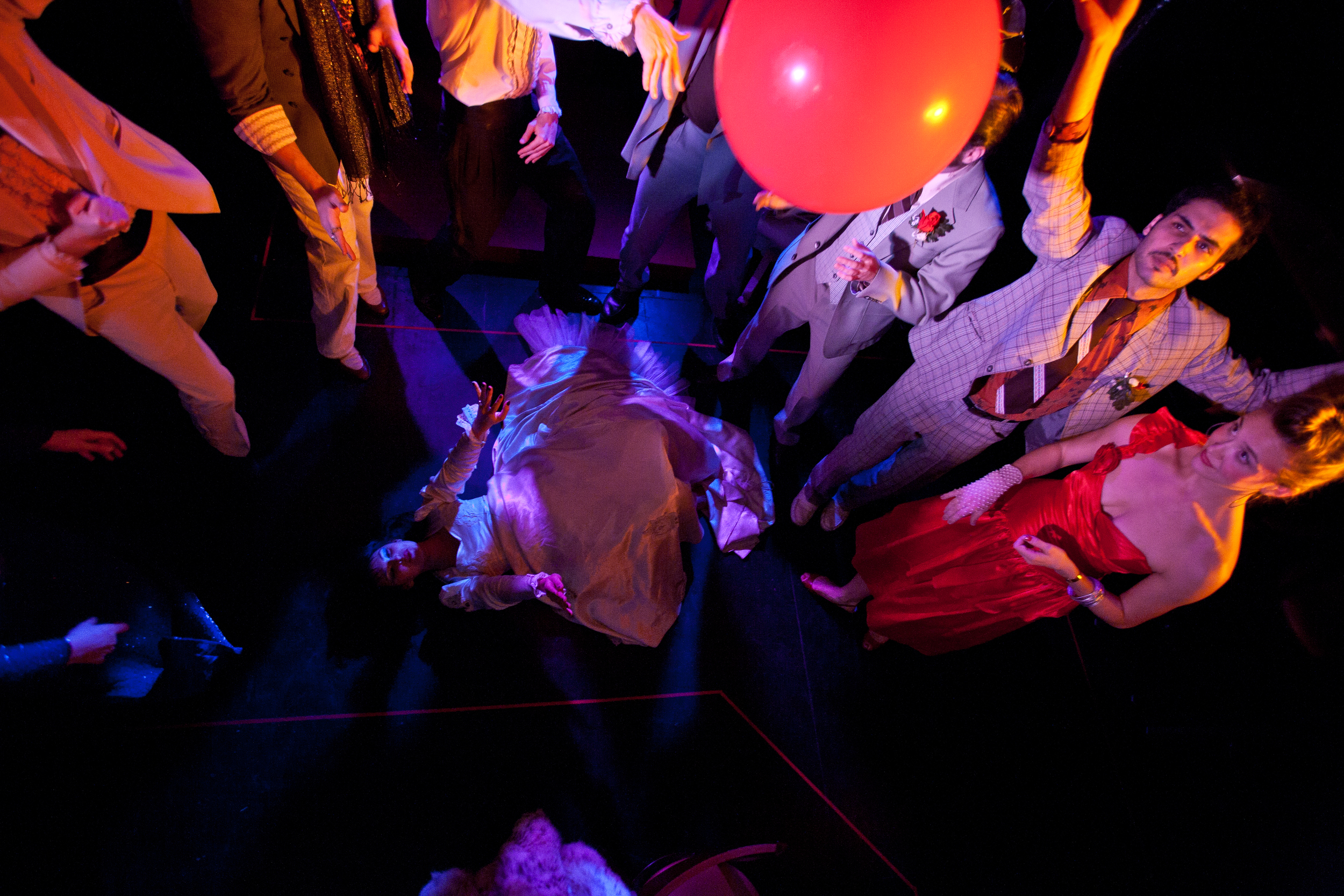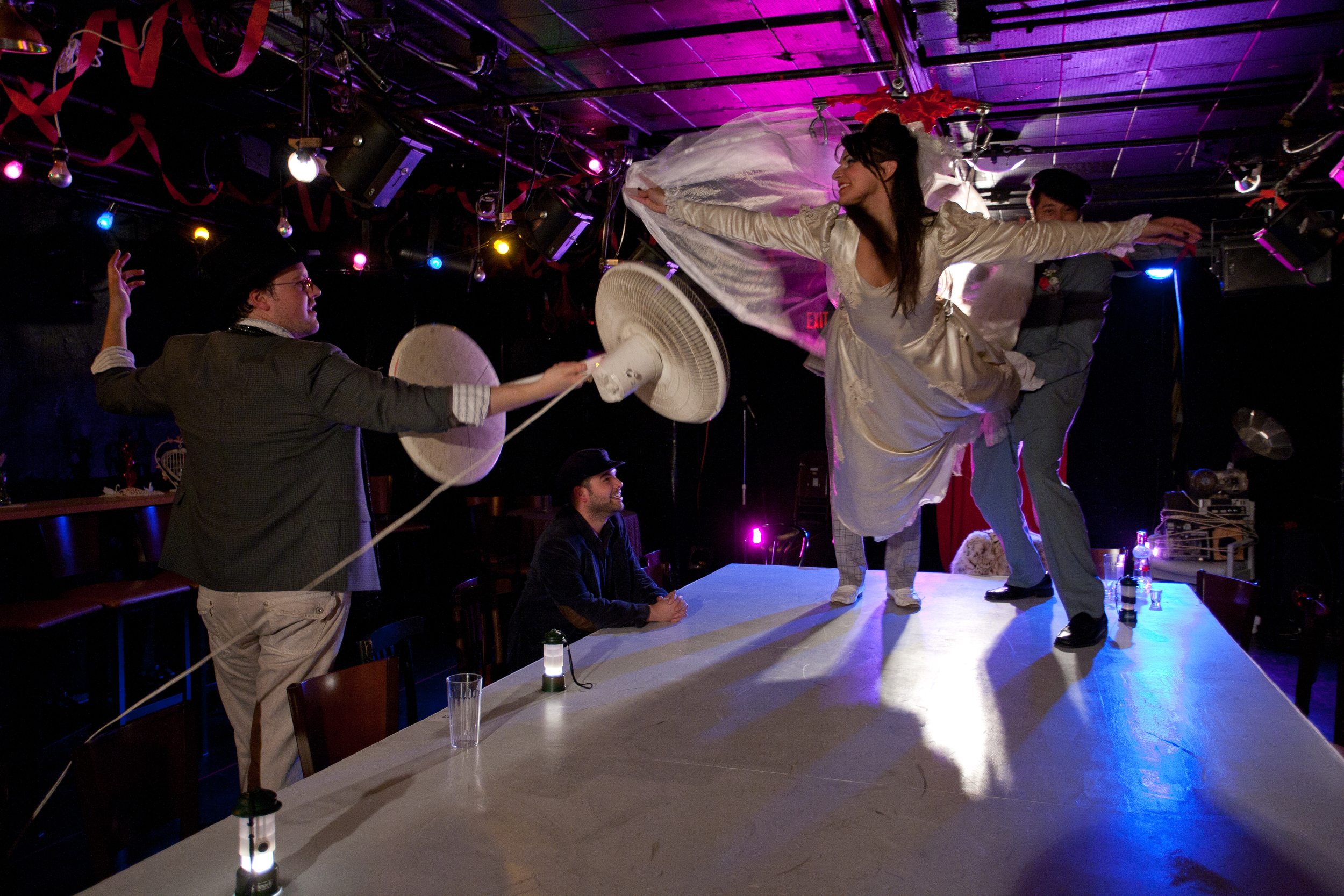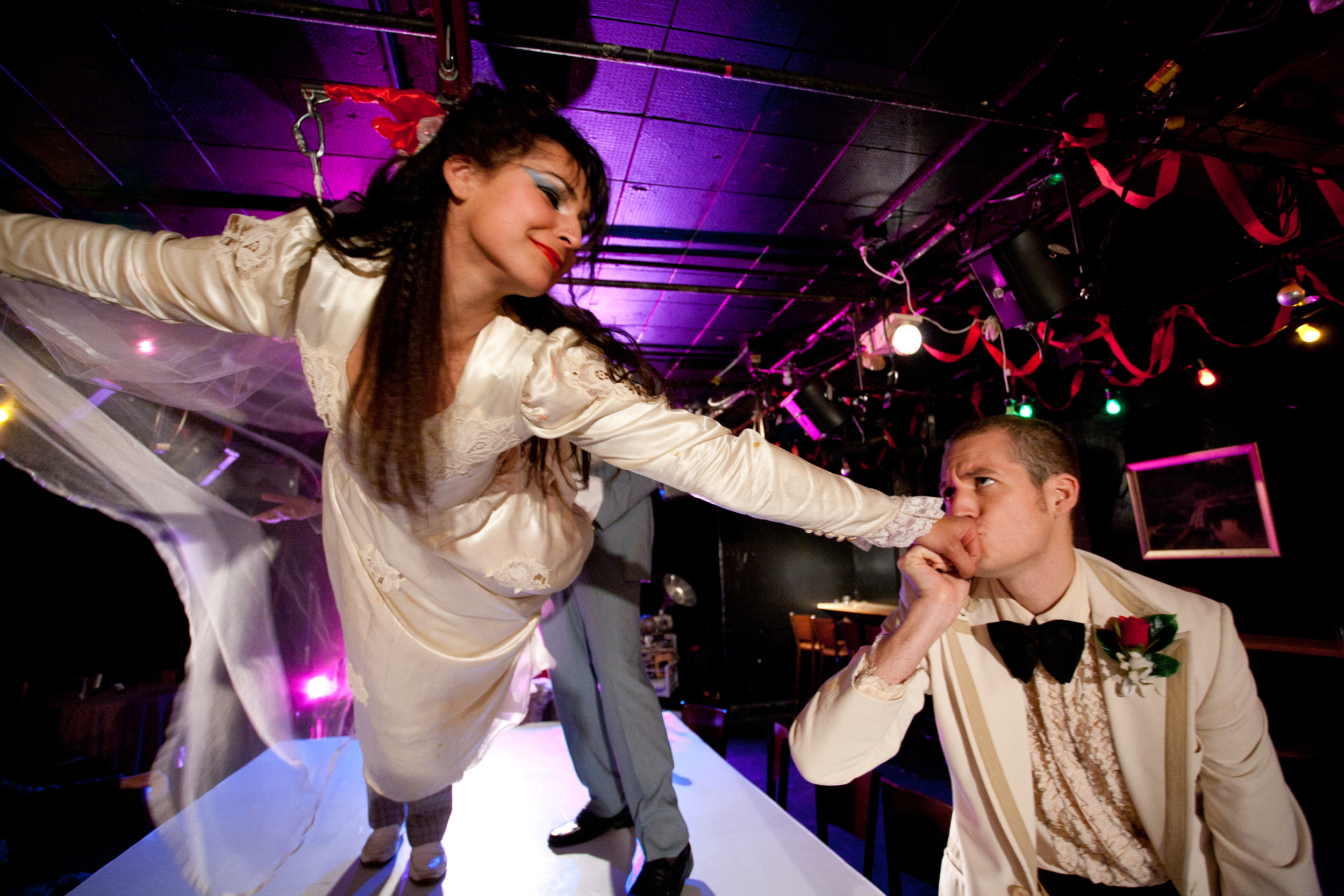The Wedding Reception
by Anton Chekhov
2010
©Nicholas Thigpen
Yale Cabaret
CAST: William DeMerit, Lucas Dixon, Martyna Majok, Colin Mannex, Emily Reilly, Sarah Sokolovic, Babak Tafti, Jack Tamburri, Brad Tuggle, Brian Wiles
CREATIVE TEAM: SET - Ana Milosevic COSTUMES - Summer Lee-Jack LIGHTS - Steve Albert
SOUND SUPERVISOR - Chad Raines STAGE MANAGER - Ariel Shepherd-Oppenheim DRAMATURG - Elliot Quick
“This was Chekhov’s concise one act stretched to about three times its usual length by adding some inspired improvisation and silent subplots. [...] Alex Mihail’s deliberately dizzying direction, and the actors’ own hilarious and salacious improvs showed the simple tale of deception at the core of Chekhov’s slight yet revealing one-act to be an indictment of a whole class-conscious ceremony-mongering culture. It helped that Mihail (who’s Romanian) selected a translation by Paul Schmidt for his expansive experiment in environmental “ensemblism”. [...] I feel confident in suggesting that Schmidt would likely have loved this Wedding Reception. I think he would have loved this production, and would have been screaming “Gor’ko!” with the rest of us.”
“Raucous, lively, veering toward chaos, with longueurs that seem to partake of the very social ritual it sought to recreate, Anton Chekhov’s The Wedding Reception, directed by Alexandru Mihail, offered the most fully integrated use of the space at the Yale Cabaret that I’ve witnessed. Seated at the big white table between spaces “reserved for the wedding party,” I got the full effect of this hyperkinetic staging. [...] Updated in Mihail’s production to the 1980s from the 1880s, the play is a one-act farce and only glancingly like any of Chekhov’s famous plays, though there are hints of Chekhovian tensions.”
“The Wedding Reception ultimately succeeds in capturing the essence of its namesake. It represents an important moment in time — one in which a woman attempts to find herself, when a family attempts to assert its standing and when a generation of people attempt to discover who they are in the face of the Soviet Union. Mihail manages to capture these struggles in the midst of a typically emotional time in a family’s life.”
